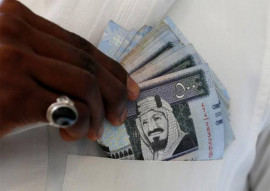
The Central Directorate of National Savings (CDNS) has mobilised seven-year high investment worth Rs306.311 billion by offering national savings certificates to individual and institutional investors in the 11 months of the previous fiscal year ended June 30, 2020, according to the central bank.
The recent high fixed rate of return on the schemes helped attract such a high investment. The directorate, which functions under the ministry of finances, has managed to attract the multi-year high investment despite investors withdrawing a net amount of Rs157.79 billion from prize bond schemes.
This was mainly from the Rs40,000 denomination after the government discontinued the bond and announced deadline to encash the bond or the bondholders should get the bonds registered in their names last year.
“The government has discontinued the bond under the compliance of Financial Action Task Force (FATF),” Pakistan Kuwait Investment Company (PKIC) Head of Research and Development Samiullah Tariq said while talking to The Express Tribune.
The bond was facilitating unregulated businesses to keep money out of the documented system such as banks. The bank deposits were depleting. Secondly, the bond was apparently being misused as a tool for corruption.
“People were whitening their black money through the bond,” Arif Habib Limited Head of Research Tahir Abbas said. “Discontinuation of the bond would help documenting money in circulation in the country.”
A new agency reported the other day that the CDNS has collected a total of Rs377 billion against the set target of Rs352 billion in full fiscal year 2020. The State Bank of Pakistan, however, reported only the 11-month investment numbers earlier this week.
CDNS is managing an investment portfolio of around seven million people. The central bank has revised down the benchmark interest rate by a massive 625 basis points since late-March to 25-month low of 7% at present. The rate cut was made to help people and businesses fight against Covid-19. The drop in the rate, however, resulted in lowering the rate of return on the saving schemes in the past couple of months.
The directorate may not attract such high investment during the current year as the government recently barred institutional investors from investing in saving schemes.
The provident and pension funds (managed by the private organisations) were the last two funds which were investing in the saving schemes. “This (investment by institutions) was costing high to the government,” Tariq said.
CDNS offers comparatively higher rate of return compared to the return on investment in long-term Pakistan Investment Bonds (PIBs) and short-term T-bills, as the directorate also invests in such short to long term government papers.
The institutions have option to invest directly in PIBs and T-bills.
“The institutions may now invest in (risk-free) term-deposits schemes being offered by the banks, invest fixed mutual fund instruments or directly invest in stocks (at Pakistan Stock Exchange),” Abbas said.
The government utilises the investment attracted through national saving schemes to bridge its budgetary deficit. The barring of institutional investors may lead the government to rely on banks for financing budget deficit.
Experts said that the Ministry of Finance and CDNS need to fix their management information system and human resource departments to attract higher amounts in the current and next years.
The CDNS offers comparatively higher rate of return on investment by senior citizens, widows, differently able people, and family members of martyred.
Published in The Express Tribune, July 19th, 2020.
Like Business on Facebook, follow @TribuneBiz on Twitter to stay informed and join in the conversation.







1732882586-0/Express-Tribune-(7)1732882586-0-270x192.webp)









COMMENTS
Comments are moderated and generally will be posted if they are on-topic and not abusive.
For more information, please see our Comments FAQ